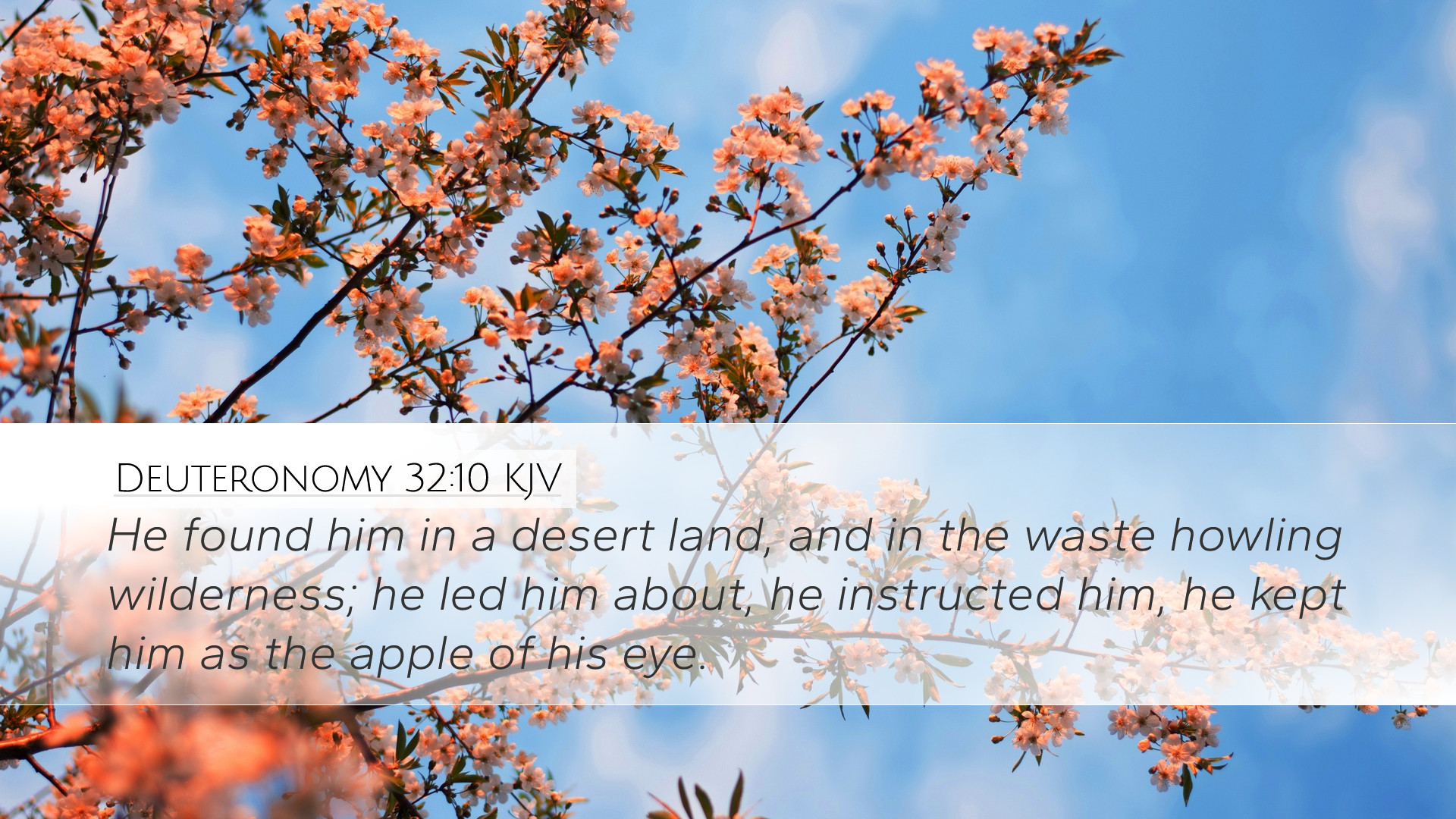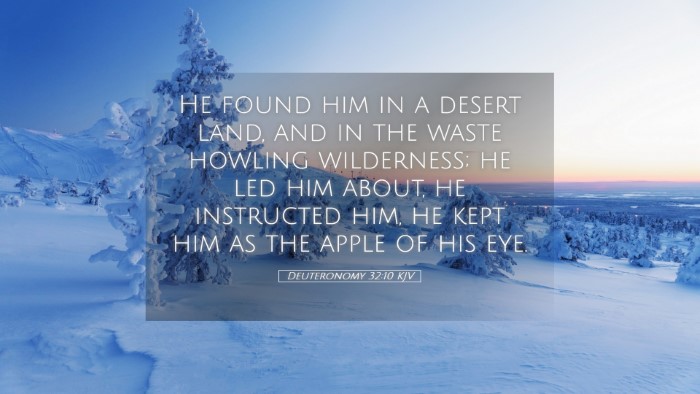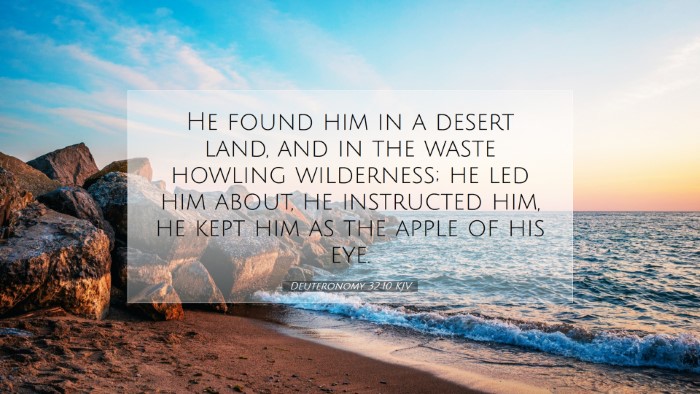Commentary on Deuteronomy 32:10
Deuteronomy 32:10 states, "He found him in a desert land, and in the waste howling wilderness: he led him about, he instructed him, he kept him as the apple of his eye." This verse is rich in theological importance and illustrates the nature of God's care for His people. Here, we explore insights from several public domain commentaries to provide a comprehensive understanding.
Contextual Background
The context of Deuteronomy 32 is critical as it comprises part of the Song of Moses, which reflects on Israel's history, God's faithfulness, and Israel's rebellion. This verse draws from the earlier experiences of Israel, particularly their formative years in the wilderness after the Exodus from Egypt.
Insights from Matthew Henry
Matthew Henry emphasizes that God's search for His people in the wilderness signifies His active interest in their well-being. He notes that the imagery of the "desert land" and "waste howling wilderness" serves to highlight the dire conditions Israel faced after leaving Egypt. Despite these challenging surroundings, God took the initiative to lead, guide, instruct, and protect them, portraying His unwavering commitment and affection.
-
Divine Guidance: Henry points out that God did not abandon His people in their time of need. Instead, He provided continuous guidance as they navigated through an inhospitable environment, reminding readers that divine leadership is often most evident in times of adversity.
-
Protection and Affection: The phrase "the apple of his eye" conveys an intimate relationship between God and Israel. Henry draws attention to how this metaphor indicates that just as one cherishes their own eye, God treasures His people, offering them protection and favor.
Insights from Albert Barnes
Albert Barnes provides a detailed examination of the verse, particularly focusing on the concepts of isolation and divine intervention. He interprets the "desert" as a place devoid of life's comforts and highlights it as a metaphor for spiritual barrenness. God’s actions demonstrate His mercy and love.
-
God’s Pursuit: Barnes underlines that God's "finding" of Israel in such a desolate place illustrates His initiative. It reflects God's nature to pursue those who are lost and in need of salvation, an important theological theme that underscores the very essence of God's love.
-
Instructive Love: Barnes notes that God’s instruction amidst wilderness trials implies that challenges can serve an educational purpose. These trials teach obedience and reliance upon God, molding character and faith – an essential lesson for both ancient and modern believers.
Insights from Adam Clarke
Adam Clarke's commentary dives into the implications of this verse on divine providence and sovereignty. Clarke argues that the wilderness experience serves as a metaphor for life’s hardships and divine sustenance amidst them.
-
Sovereignty in Difficulties: Clarke asserts that God actively governs His creation, ensuring that amid trials, His presence remains a source of strength and comfort. The wilderness, though harsh, becomes the arena for God to reveal His power and faithfulness.
-
Symbolism of the ‘Apple of His Eye’: Clarke elaborates on the significance of being "the apple of His eye," emphasizing the tender care and protection afforded by God to His people. This symbolism reassures believers of their worth and God’s commitment to their preservation.
Theological Implications
The theological implications of Deuteronomy 32:10 extend beyond its historical context into the lives of contemporary believers. The verse offers profound insights into the nature of God as a loving and protective leader.
-
God's Assurance: The assurance that God actively seeks and protects His people can instill hope, especially in times of spiritual desolation or emotional turmoil. This truth is integral for pastoral counseling and encouragement.
-
The Nature of Trials: Understanding that trials may serve a greater purpose can shift perspectives on suffering. The wilderness experiences become an avenue for growth and deeper reliance on God.
-
The Call to Remember: The verse serves as a call to remember God's past faithfulness. In liturgical settings, recalling God's guidance can encourage worship and deepen congregational bonds through shared narratives of God’s faithfulness.
Conclusion
In summary, Deuteronomy 32:10 encapsulates God's unwavering love and commitment to His people. The combined insights from Matthew Henry, Albert Barnes, and Adam Clarke enrich our understanding of God's character and His providential care, drawing contemporary application for pastors, students, theologians, and scholars alike. The verse encourages reflection on both God's past guidance and the continuing relevance of His protective love in the modern faith journey.


